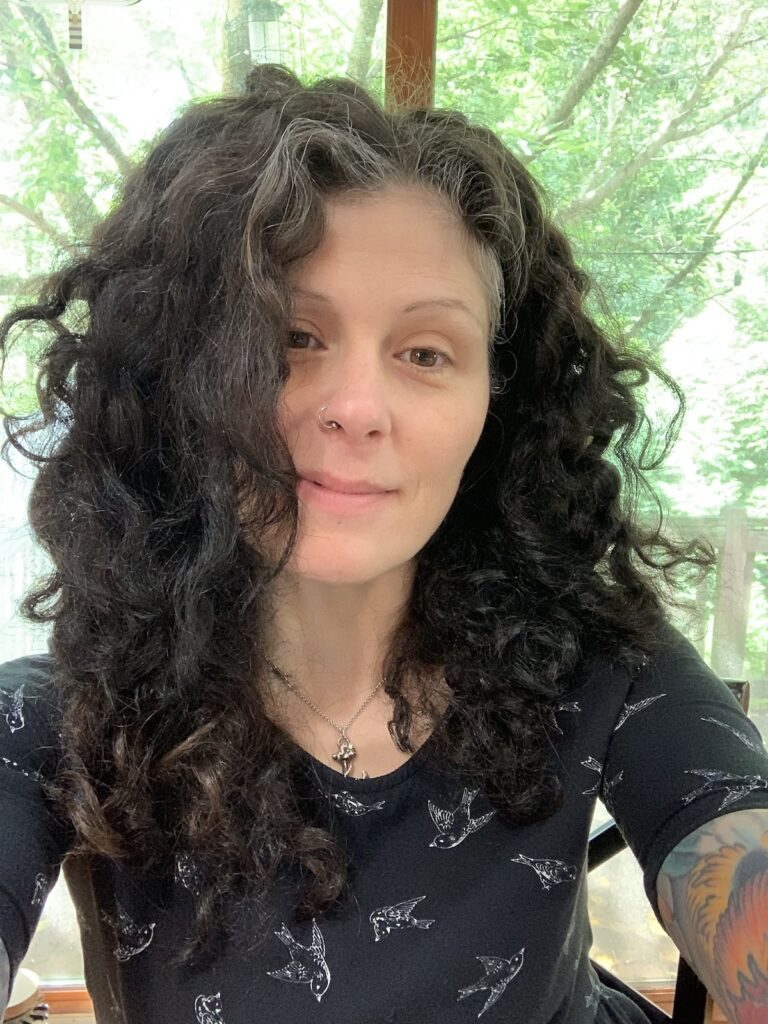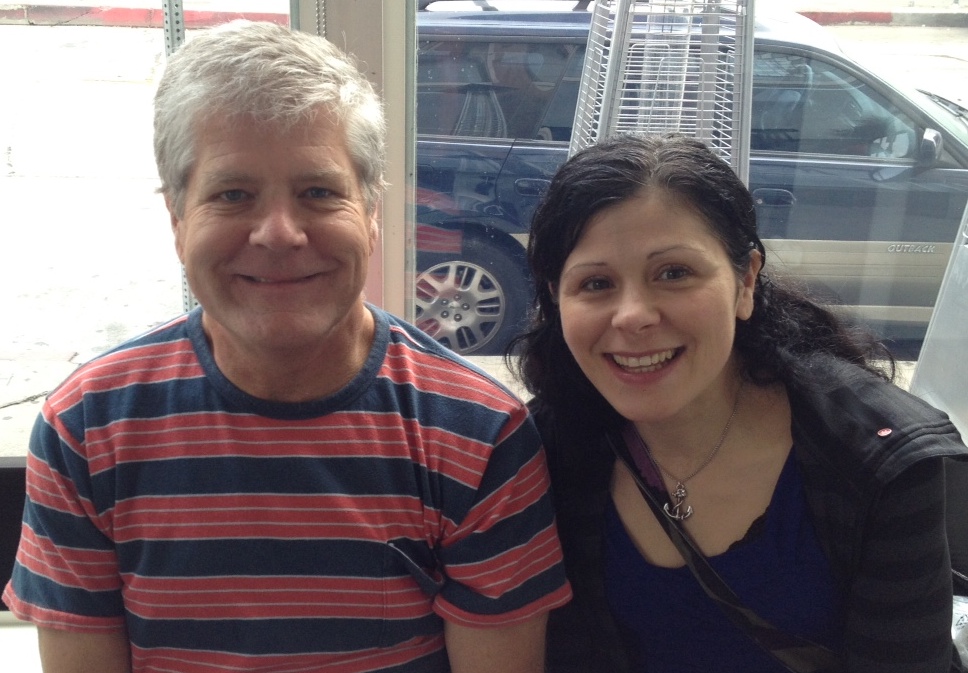By Aimee Seiff Christian
My hair is unusual. Thick, coarse, wavy, and curly all at once. Every stylist I’ve ever gone to marvels at it, fears it, or both. People tell me they envy my tresses, but for most of my life I did not appreciate their tenacious temperament. Step outside in the summer humidity and poof, I am a dandelion, a big frizzy, fuzzy one. I leave souvenirs of myself everywhere: little fuzzles of hair, reminders that I sat in that seat, used that pillow case, or borrowed that jacket. My hair listens to no one and wants everyone to know it.
I’m adopted; I am boring brown hair brown eyes white skin, but in the guess where Aimee’s from-from game, my hair is always a special contestant, and no one ever surmises its origin. Least of all me.
The first time we played the game it went like this:
Neighborhood kid: Where are you from?
Me: Here.
Kid: No, I mean where are you from?
Me: Here. Queens. Jackson Heights.
Kid: No, I mean, where are you from-from?
Me: Oh. Well. I don’t really know.
Kid: Wait, what?
My parents have garden variety Jewish hair. You know. Basic. Brown. Like mine, but not. Fine. Straight. Even if I passed as their biological kid a lot of the time, people looked at me quizzically, touching my hair without permission, saying you sure didn’t get your hair from them!
There are pictures of me as a toddler with my hair in rollers. The night before school photos my mother would furiously comb and set and trim my bangs. In every single elementary school photo, my bangs are a line graph plotting steady progress from where she started just above one eyebrow across a series of cowlicks to where she ended on the other side of my face, some two inches higher. By middle school, I refused to let her anywhere near me when a camera was about. In high school I stopped brushing it altogether.
My hair became a stand-in for the rest of me. In elementary school was when things with my mother began to go awry. In middle school, she and I stopped talking. By high school, well, shit was bad, and it was not just my hair, which was down to my waist. I was studying art history and I joked to everyone that soon I’d look like Mary Magdalene emerging from the forest. When I shaved my head in defiance of not even I knew what, people started to worry.
When I reunited with my birth mother at 26, I saw she too had thick brown hair. In a photo she gave me of herself as a teenager, her hair was shiny, lush, and smooth, brushed out long over her shoulders. She was salt and pepper by the time she was 45, like I am now, but her hair, while thick and wavy, was less wild than mine. It responded to blow outs, perms, and keratin treatments. She looked like she just came from the salon up until the day she died. On the other hand, I looked like I’d never set foot in a salon. But at that point I hadn’t. Box dye, crimpers, Aussie Sprunch Spray, bandanas, clips, and backcombing all made my hair even more impossible than it already was. Over time I vowed to embrace the curl and the thickness and the rest, learning to go natural thanks to my Black friends and the internet. But it was harder than I expected. I wanted to look like my birth mother. I did. But my hair didn’t.
Turns out, she too had been adopted. Generations of adoption, I learned, are not uncommon. But this left me not knowing anything more about where I’m from-from with my birth mother in my life than without her. After she died, I spat in a cup and discovered I was only 25% Ashkenazi Jew. The rest of me was Northern European. All British and Irish.
When I met my birth father, it was like looking at the definition of a recessive gene: blond hair closely cropped to his head, blue eyes, left-handed. All the things I was not. But then he emailed me later, apropos seemingly of nothing:
Do you need to buy your baseball caps at the extralargebaseballcaps.com online store?
I have never worn a baseball cap, I responded. And I hate hats in general. They don’t stay on my head. My hair is too thick.
Well, you got that from me, he replied with a laughing emoji. Try that store.
I investigated. They sold about three ugly caps, so no thank you. But when I looked at him closely, I could tell that his very short, now white hair was coarse and feral with cowlicks. I recalled the blurry high school yearbook photo my birth mother had given me years before: a teenaged, cranky expression and a bushy, blond bob that refused to obey, pointing this way and that. His adolescent hair was just like mine.
I never would have guessed that my wild mane came from these roots, but that’s the irony of not knowing the answers to the where are you from-from questions. Anything’s possible.
My birth parents created the perfect genetic storm for this riotous hair. They created me, this person with otherwise innocuous features and hair that no one could figure out. And now that I know where it came from, I’m kinda loving it. And now that I know where I came from, I’m kinda loving me too.

—Christian is an adoptee who writes creative nonfiction, essays, and memoir about identity, adoption, parenting, and disability. Her writing has appeared in The New York Times, The Washington Post, the Independent, Cognoscenti, Pidgeonholes, Entropy, Hippocampus, the Brevity Blog, and more. She reads creative nonfiction for Hippocampus and is an instructor at GrubStreet and privately on her own website. Find out more about Christian at her website, find her on Twitter and Instagram, and see more of her work here. She is offering Writing Personhood: For Adoptees beginning Sunday January 9, 2022. Find information and register here.

